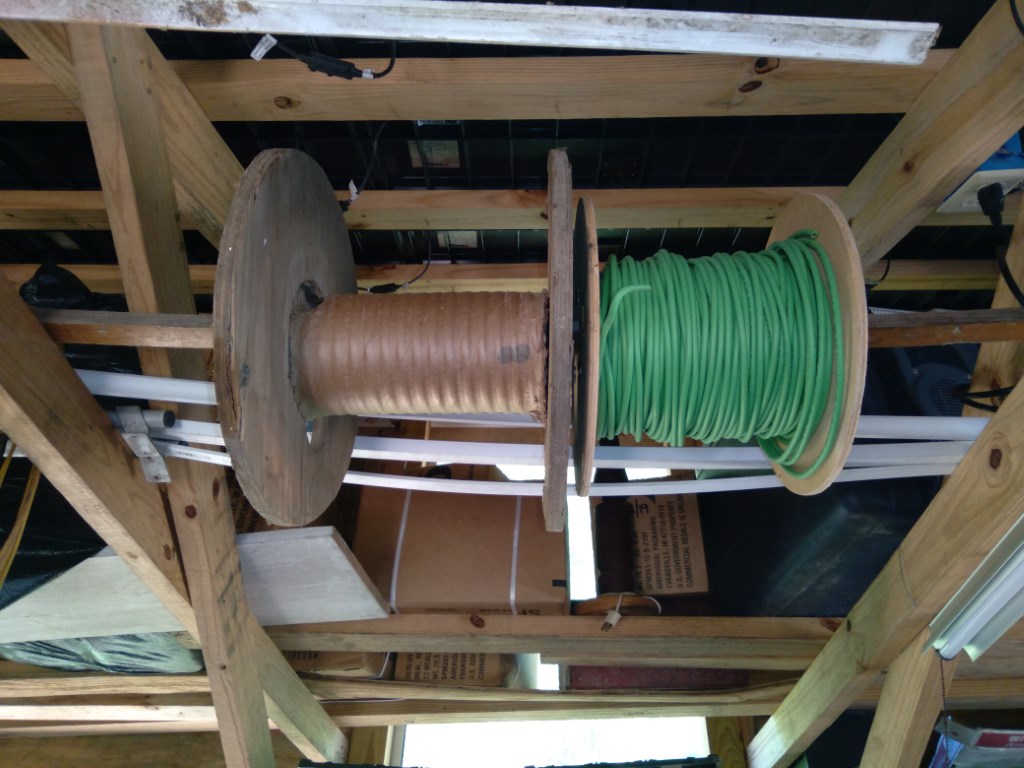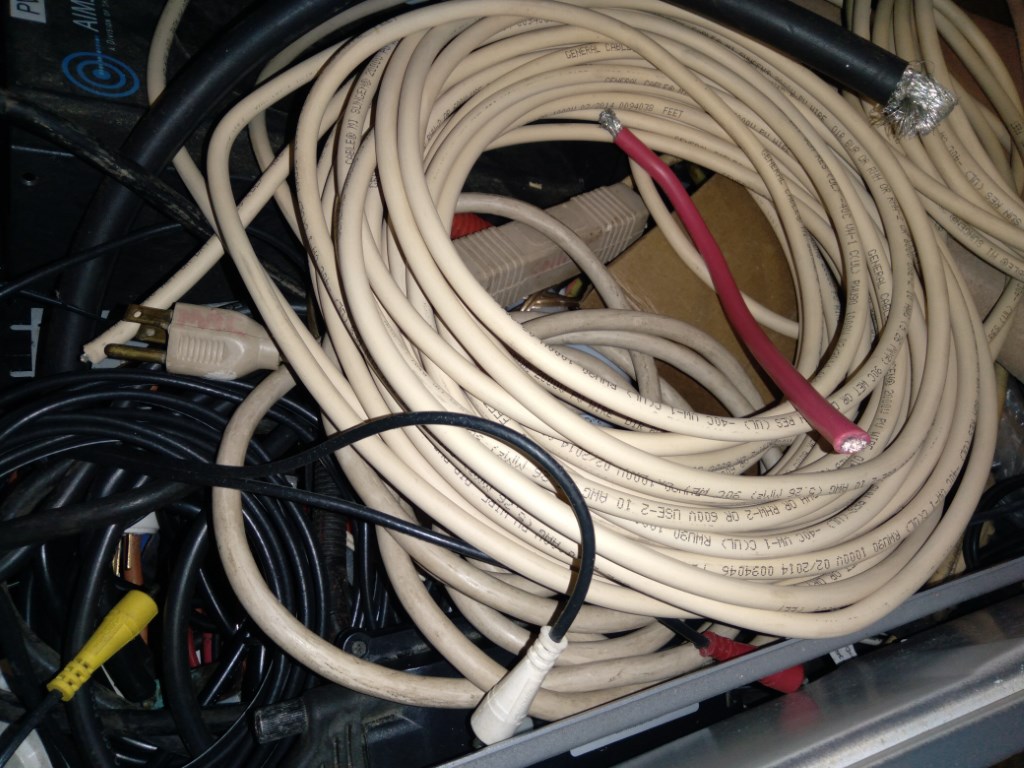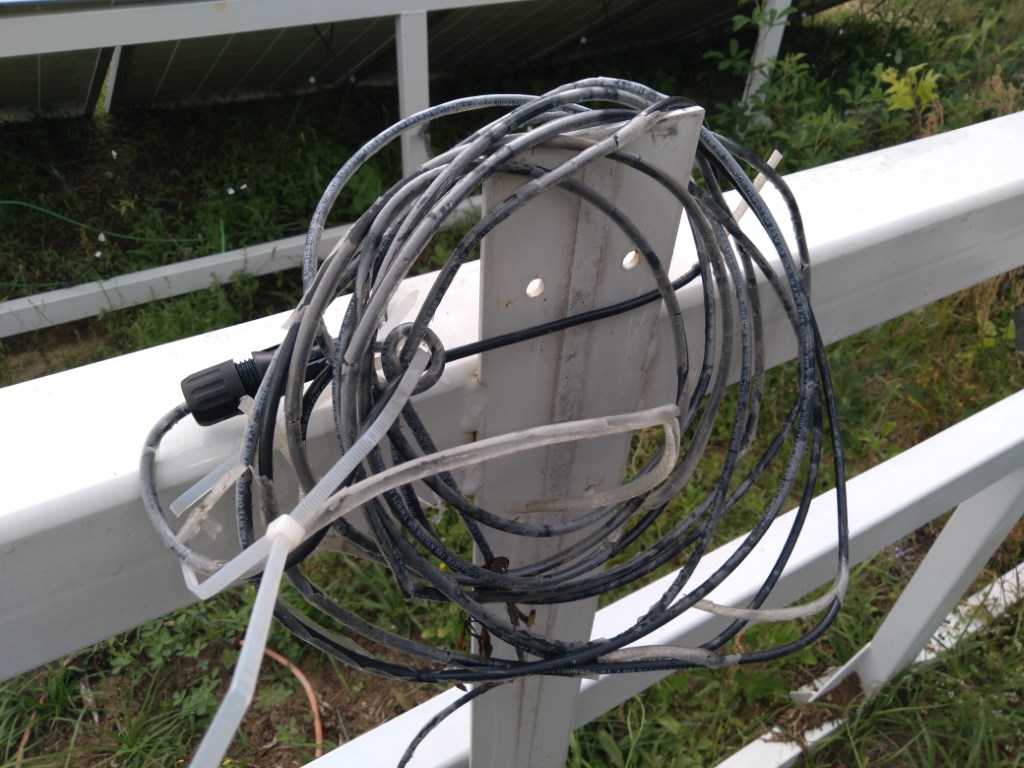AMPACITY. That’s our word for the day. If you think it sounds like a mashup of “ampere” and “capacity”, then give yourself a gold star. That’s exactly what it is.
So, what’s it all about? If you are moving electricity around with wires, then you need to understand that you need to choose the wire of the right ampacity. Really thin wire could melt and start a fire. Too thin wire would work safely, but you might lose some precious watts to resistance. Wire that is too fat is fine, but expensive. Choose the right wire and you will end up with a system that is safe and cost effective.

Lower voltages require thicker wire of a higher ampacity than higher voltage. In my house, most of the outlets are on 20 amp circuits delivered by 12 gauge wire. This might sometimes be listed as 12 AWG. Some houses are wired with 15 amp circuits and 14 gauge wire.
Battery cables tend to be thicker on 12 volt systems than on 24v or 48v systems. Why? To get the same number of watts (Watts = Amps X Volts) it takes 4X the amps on a 12v system than on a 48v system.
On a household 120vac system, it is ok to lose 2 volts in the resistance of the wire, but losing 2 volts between the battery and inverter might mean the inverter will do a low voltage shutdown.
I have a situation at my house where the wire I have buried is only good for 40 amps and I can now easily supply 50 amps at 240vac. There is a bunch of stuff in the ground along the path, so I will be very careful not to hit water or sparks if I dig a new trench, but the real scare is the price of wire, these days. Since the beginning of the year, the wire that I need has jumped to $902! Whoa!

Now, mind you, that’s for copper wire. What if I check the ampacity of ALUMINUM direct burial cable? Turns out, that’s a couple of steps thicker (wire usually increments in 2 points), but the price is only $258. That sounds a whole lot better. I don’t like aluminum wire, but I may make an exception!
Ampacity tables are all over the internet. What I have run into with them is that some tables list for safe current capacity and not necessarily for code compliant or for the voltage level where you are working. Take a look at the rating for 12AWG and see if they say about 20 amps. If so, you have the right table. Make it a little thicker (smaller AWG number) for lower voltage battery runs. 10AWG is typical for solar panel strings and 00 or 0000AWG are typically used for batteries on big systems.

As for my situation, to dig or not to dig? One of these days. Maybe.

Utilities use Al Triplex wire almost exclusively, properly utilized it can be a more cost effective solution, especially in these times of inflation, oops did I say a forbidden word? please don’t ban me!
The current price of 4/0,4/0,2/0 triplex direct burial is $2.64 a foot here in S. fla. may be less in N. fla.
You can also design your system to use higher voltages, so you then need less current, and can use thinner wire 🙂